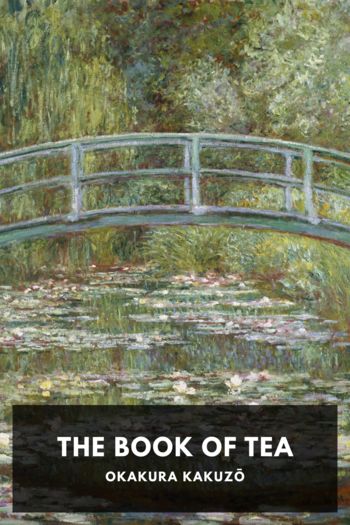Shirley Charlotte Brontë (free ebook reader for pc .txt) 📖

- Author: Charlotte Brontë
Book online «Shirley Charlotte Brontë (free ebook reader for pc .txt) 📖». Author Charlotte Brontë
“What whim now?” he asked. “Are you bewitched? What can you mean?”
“I am not well, and need a change,” she said.
He examined her. He discovered she had experienced a change, at any rate. Without his being aware of it, the rose had dwindled and faded to a mere snowdrop; bloom had vanished, flesh wasted; she sat before him drooping, colourless, and thin. But for the soft expression of her brown eyes, the delicate lines of her features, and the flowing abundance of her hair, she would no longer have possessed a claim to the epithet pretty.
“What on earth is the matter with you?” he asked. “What is wrong? How are you ailing?”
No answer; only the brown eyes filled, the faintly-tinted lips trembled.
“Look out for a situation, indeed! For what situation are you fit? What have you been doing with yourself? You are not well.”
“I should be well if I went from home.”
“These women are incomprehensible. They have the strangest knack of startling you with unpleasant surprises. Today you see them bouncing, buxom, red as cherries, and round as apples; tomorrow they exhibit themselves effete as dead weeds, blanched and broken down. And the reason of it all? That’s the puzzle. She has her meals, her liberty, a good house to live in, and good clothes to wear, as usual. A while since that sufficed to keep her handsome and cheery, and there she sits now a poor, little, pale, puling chit enough. Provoking! Then comes the question, What is to be done? I suppose I must send for advice. Will you have a doctor, child?”
“No, uncle, I don’t want one. A doctor could do me no good. I merely want change of air and scene.”
“Well, if that be the caprice, it shall be gratified. You shall go to a watering-place. I don’t mind the expense. Fanny shall accompany you.”
“But, uncle, some day I must do something for myself; I have no fortune. I had better begin now.”
“While I live, you shall not turn out as a governess, Caroline. I will not have it said that my niece is a governess.”
“But the later in life one makes a change of that sort, uncle, the more difficult and painful it is. I should wish to get accustomed to the yoke before any habits of ease and independence are formed.”
“I beg you will not harass me, Caroline. I mean to provide for you. I have always meant to provide for you. I will purchase an annuity. Bless me! I am but fifty-five; my health and constitution are excellent. There is plenty of time to save and take measures. Don’t make yourself anxious respecting the future. Is that what frets you?”
“No, uncle; but I long for a change.”
He laughed. “There speaks the woman!” cried he, “the very woman! A change! a change! Always fantastical and whimsical! Well, it’s in her sex.”
“But it is not fantasy and whim, uncle.”
“What is it then?”
“Necessity, I think. I feel weaker than formerly. I believe I should have more to do.”
“Admirable! She feels weak, and therefore she should be set to hard labour—‘clair comme le jour,’ as Moore—confound Moore! You shall go to Cliff Bridge; and there are two guineas to buy a new frock. Come, Cary, never fear. We’ll find balm in Gilead.”
“Uncle, I wish you were less generous and more—”
“More what?”
Sympathizing was the word on Caroline’s lips, but it was not uttered. She checked herself in time. Her uncle would indeed have laughed if that namby-pamby word had escaped her. Finding her silent, he said, “The fact is, you don’t know precisely what you want.”
“Only to be a governess.”
“Pooh! mere nonsense! I’ll not hear of governessing. Don’t mention it again. It is rather too feminine a fancy. I have finished breakfast. Ring the bell. Put all crotchets out of your head, and run away and amuse yourself.”
“What with? My doll?” asked Caroline to herself as she quitted the room.
A week or two passed; her bodily and mental health neither grew worse nor better. She was now precisely in that state when, if her constitution had contained the seeds of consumption, decline, or slow fever, those diseases would have been rapidly developed, and would soon have carried her quietly from the world. People never die of love or grief alone, though some die of inherent maladies which the tortures of those passions prematurely force into destructive action. The sound by nature undergo these tortures, and are racked, shaken, shattered; their beauty and bloom perish, but life remains untouched. They are brought to a certain point of dilapidation; they are reduced to pallor, debility, and emaciation. People think, as they see them gliding languidly about, that they will soon withdraw to sickbeds, perish there, and cease from among the healthy and happy. This does not happen. They live on; and though they cannot regain youth and gaiety, they may regain strength and serenity. The blossom which the March wind nips, but fails to sweep away, may survive to hang a withered apple on the tree late into autumn: having braved the last frosts of spring, it may also brave the first of winter.
Everyone noticed the change in Miss Helstone’s appearance, and most people said she was going to die. She never thought so herself. She felt in no dying case; she had neither pain nor sickness. Her appetite was diminished; she knew the reason. It was because she wept so much at night. Her strength was lessened; she could account for it. Sleep was coy and hard to be won; dreams were distressing and baleful. In the far future she still seemed to anticipate a time when this passage of misery should be got over, and when she should once more be calm, though perhaps never again happy.
Meanwhile her uncle urged her to visit, to comply with the frequent invitations of their acquaintance. This she evaded doing. She could not be cheerful





Comments (0)